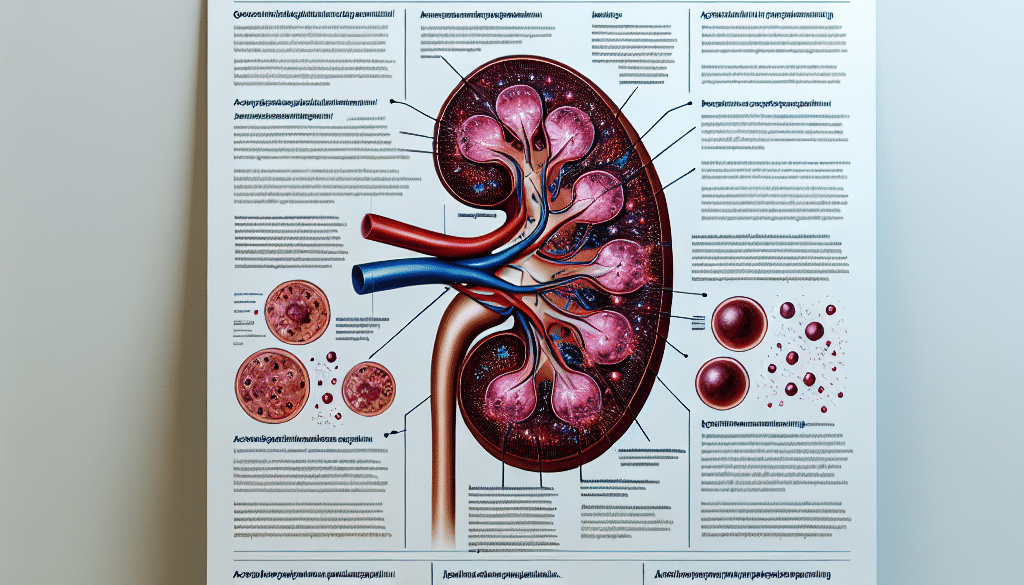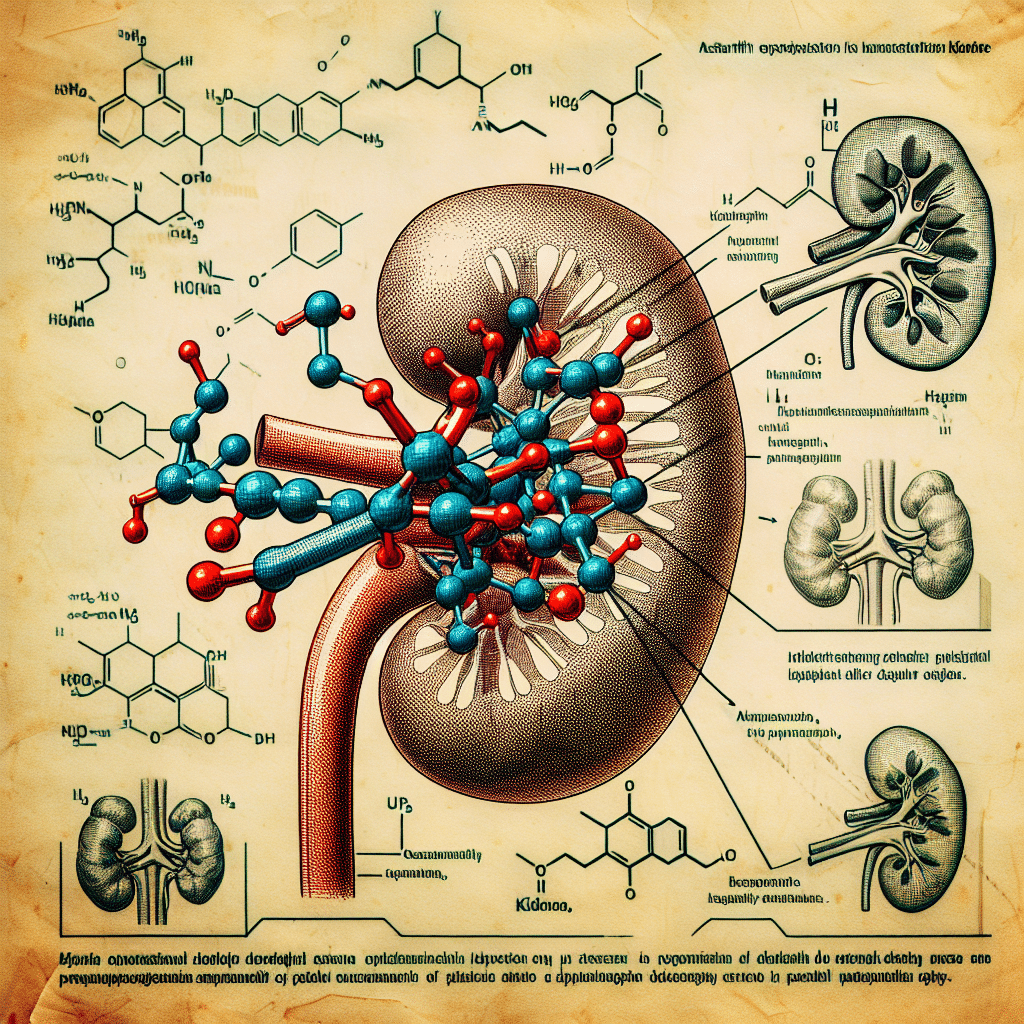Is astaxanthin hard on kidneys?
-
Table of Contents
- Astaxanthin and Kidney Health: Analyzing the Impact
- Understanding Astaxanthin
- The Role of Antioxidants in Kidney Health
- Research on Astaxanthin and Kidney Function
- Potential Risks and Side Effects
- Case Studies and Clinical Trials
- Recommended Dosage and Precautions
- Conclusion: Balancing Benefits and Risks
- Explore ETChem’s Protein Products
Astaxanthin and Kidney Health: Analyzing the Impact
Astaxanthin, a naturally occurring carotenoid found in certain algae, seafood, and some birds, has gained popularity as a potent antioxidant supplement. Its potential health benefits range from improved skin health to enhanced athletic performance. However, with the rise in its usage, concerns about its effects on various organs, including the kidneys, have emerged. This article delves into the current research to answer the question: Is astaxanthin hard on kidneys?
Understanding Astaxanthin
Astaxanthin is a keto-carotenoid that contributes to the pink or red color in salmon, trout, lobster, shrimp, and other seafood. It is also responsible for the vibrant plumage of flamingos and other birds. As an antioxidant, astaxanthin is known for its ability to neutralize free radicals in the body, potentially protecting cells from oxidative damage.
The Role of Antioxidants in Kidney Health
The kidneys are vital organs that filter waste products from the blood and regulate fluid balance. They are also susceptible to oxidative stress, which can lead to various kidney diseases. Antioxidants like astaxanthin could theoretically help protect the kidneys by reducing oxidative damage.
Research on Astaxanthin and Kidney Function
Several studies have investigated the effects of astaxanthin on kidney health, with a focus on its antioxidant properties. Here are some findings:
- A study published in the journal “Marine Drugs” suggested that astaxanthin could protect against kidney damage in diabetic mice by reducing oxidative stress and inflammation.
- Another study in the “Journal of Pharmacological Sciences” found that astaxanthin might help prevent the progression of kidney disease in rats by inhibiting oxidative stress and fibrosis.
- Research in “Nutrients” indicated that astaxanthin could improve lipid metabolism and reduce the risk of kidney stone formation.
While these studies show promising results, it is important to note that most research has been conducted on animals or in vitro. Human studies are needed to confirm these effects.
Potential Risks and Side Effects
As with any supplement, it is crucial to consider the potential risks and side effects. Astaxanthin is generally recognized as safe (GRAS) by the U.S. Food and Drug Administration (FDA) when used as a food additive. However, the impact of high doses or long-term supplementation on kidney function is not well-documented.
Some potential side effects of astaxanthin supplementation may include:
- Changes in hormone levels
- Lowered blood pressure
- Increased skin pigmentation
- Gastrointestinal discomfort
It is also important to consider interactions with other medications or underlying health conditions. Individuals with kidney disease or those taking medications that affect kidney function should consult a healthcare provider before starting astaxanthin supplements.
Case Studies and Clinical Trials
Human clinical trials and case studies are limited regarding astaxanthin’s impact on kidney health. However, a few small-scale studies have shown no adverse effects on kidney function in healthy individuals taking astaxanthin supplements. More extensive and long-term studies are needed to fully understand the potential risks and benefits.
Recommended Dosage and Precautions
The recommended dosage of astaxanthin varies depending on the intended use, but it typically ranges from 4 to 12 mg per day. To minimize potential risks, it is advisable to:
- Start with a lower dose and gradually increase it if necessary
- Choose high-quality supplements from reputable manufacturers
- Consult a healthcare provider, especially if you have pre-existing kidney conditions or are taking other medications
Conclusion: Balancing Benefits and Risks
In conclusion, current research suggests that astaxanthin has the potential to benefit kidney health due to its antioxidant properties. However, the lack of extensive human studies means that caution should be exercised, particularly for individuals with kidney disease or those taking medications that affect kidney function. As with any supplement, it is essential to consult with a healthcare professional before starting astaxanthin, especially at high doses or for long-term use.
The key takeaways from this article are:
- Astaxanthin is a powerful antioxidant that may protect against oxidative stress in the kidneys.
- Animal studies have shown promising results, but human studies are needed to confirm these effects.
- While generally considered safe, astaxanthin’s long-term impact on kidney function is not well-documented.
- Individuals with kidney concerns should consult a healthcare provider before supplementing with astaxanthin.
Explore ETChem’s Protein Products
If you’re interested in enhancing your health regimen, consider exploring ETChem’s range of protein products. ETChem is a reputable manufacturer and supplier of high-quality collagens, including marine, fish, bovine, chicken, and various types of collagen. Their products are known for their neutral taste and instant solubility, making them an excellent addition to various industries, including nutraceuticals, pharmaceuticals, and food and beverage.
ETChem’s specialization in exporting and delivering tailor-made collagen powder and finished collagen nutritional supplements ensures that you have access to the best protein solutions for your needs. Whether you’re looking to support your health and wellness, sports nutrition, weight management, or dietary supplements, ETChem has you covered.
For more information or to sample their products, please contact ETChem and email karen(at)et-chem.com today.
About ETChem:
ETChem, a reputable Chinese Collagen factory manufacturer and supplier, is renowned for producing, stocking, exporting, and delivering the highest quality collagens. They include marine collagen, fish collagen, bovine collagen, chicken collagen, type I collagen, type II collagen and type III collagen etc. Their offerings, characterized by a neutral taste, instant solubility attributes, cater to a diverse range of industries. They serve nutraceutical, pharmaceutical, cosmeceutical, veterinary, as well as food and beverage finished product distributors, traders, and manufacturers across Europe, USA, Canada, Australia, Thailand, Japan, Korea, Brazil, and Chile, among others.
ETChem specialization includes exporting and delivering tailor-made collagen powder and finished collagen nutritional supplements. Their extensive product range covers sectors like Food and Beverage, Sports Nutrition, Weight Management, Dietary Supplements, Health and Wellness Products, ensuring comprehensive solutions to meet all your protein needs.
As a trusted company by leading global food and beverage brands and Fortune 500 companies, ETChem reinforces China’s reputation in the global arena. For more information or to sample their products, please contact them and email karen(at)et-chem.com today.




